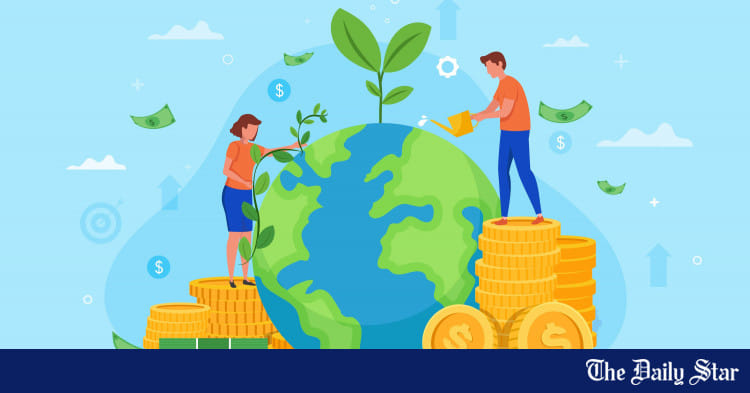Saif
Senior Member
- Joined
- Jan 24, 2024
- Messages
- 17,175
- Likes
- 8,204
- Nation

- Residence

- Axis Group


$300m WB fund for clean air project
The World Bank will provide $300 million to assist the clean air project in Bangladesh. The initiative has been taken to strengthen air quality management in the country and to reduce the carbon emissions in key sectors. Environment advisor to the interim government Syeda Rizwana Hasan shared the
$300m WB fund for clean air project
Environment adviser, World Bank VP meet
FE REPORT
Published :
Sep 30, 2024 00:24
Updated :
Sep 30, 2024 00:24

The World Bank will provide $300 million to assist the clean air project in Bangladesh.
The initiative has been taken to strengthen air quality management in the country and to reduce the carbon emissions in key sectors.
Environment advisor to the interim government Syeda Rizwana Hasan shared the information following a meeting with Martin Raiser, the World Bank's vice president for the South Asia Region, and Abdoulaye Seck, country director for Bangladesh and Bhutan, according to a press statement.
The project will be funded by an IDA credit, along with a potential grant for clean cooking initiatives as part of the National Air Quality Management Plan.
During the meeting, the Environment Adviser also called for the World Bank's assistance in waste management and the restoration of Dhaka's canals to create a "blue network."
She further mentioned the possibility of support for a Loss and Damage Fund, as well as aid in implementing the National Adaptation Plan (NAP).
Rizwana highlighted the government's strong commitment to environmental protection and sustainable development, stressing the importance of integrated approaches to water resource management and climate change mitigation.
World Bank Vice President Martin Raiser commended Bangladesh's efforts to implement progressive environmental policies and affirmed its support in aligning these efforts with global best practices.
Abdoulaye Seck emphasized the importance of international collaboration and strategic investments to achieve long-term sustainability goals.
The Secretary of the Ministry of Environment and Water Resources, the Additional Secretary of the Environment Ministry, and other officials from both the Ministry and the World Bank were also present at the meeting.
The discussions concluded with both sides committing to deeper cooperation on environmental governance, climate resilience, and water resource management, with a mutual goal of working towards a sustainable future for Bangladesh.
Environment adviser, World Bank VP meet
FE REPORT
Published :
Sep 30, 2024 00:24
Updated :
Sep 30, 2024 00:24
The World Bank will provide $300 million to assist the clean air project in Bangladesh.
The initiative has been taken to strengthen air quality management in the country and to reduce the carbon emissions in key sectors.
Environment advisor to the interim government Syeda Rizwana Hasan shared the information following a meeting with Martin Raiser, the World Bank's vice president for the South Asia Region, and Abdoulaye Seck, country director for Bangladesh and Bhutan, according to a press statement.
The project will be funded by an IDA credit, along with a potential grant for clean cooking initiatives as part of the National Air Quality Management Plan.
During the meeting, the Environment Adviser also called for the World Bank's assistance in waste management and the restoration of Dhaka's canals to create a "blue network."
She further mentioned the possibility of support for a Loss and Damage Fund, as well as aid in implementing the National Adaptation Plan (NAP).
Rizwana highlighted the government's strong commitment to environmental protection and sustainable development, stressing the importance of integrated approaches to water resource management and climate change mitigation.
World Bank Vice President Martin Raiser commended Bangladesh's efforts to implement progressive environmental policies and affirmed its support in aligning these efforts with global best practices.
Abdoulaye Seck emphasized the importance of international collaboration and strategic investments to achieve long-term sustainability goals.
The Secretary of the Ministry of Environment and Water Resources, the Additional Secretary of the Environment Ministry, and other officials from both the Ministry and the World Bank were also present at the meeting.
The discussions concluded with both sides committing to deeper cooperation on environmental governance, climate resilience, and water resource management, with a mutual goal of working towards a sustainable future for Bangladesh.








































